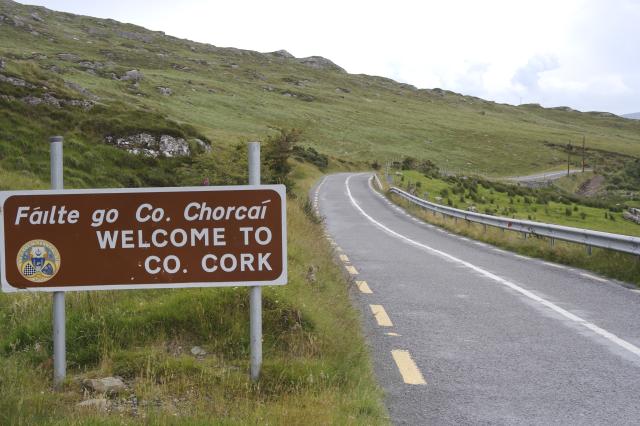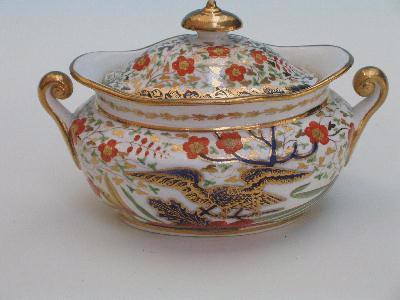Tate's Hell Continued (Part 2)
Read part 1 here.
(This is a fictional account of a folk story from my native Florida and (c) 2009 to me.)
"Well, I should start from the beginning," Aunt Magdalen said, interrupting herself with a coughing fit. We had to adjust her pillows and Lizzie brought in some tincture of steaming water that made Aunt's face look like she'd eaten a lemon. Aunt stopped wheezing and hacking very suddenly, placing her right hand on her chest and taking a deep breath, almost like she was ready to walk outside or get up from her knees after prayer. It was hard for me to think of this as a deathbed confession, which is what it certainly was. All I really wanted to do was put her hair up. It was grey and black and oily and hung tiredly around her shoulders. Aunt Maggie and her hair used to have more discipline than that. But at least her pale blue eyes were clear, keeping me serious,--and scared.
"When we first met the Nabors, they had rolled into town on a wagon, just like everybody else. You see the Governor had offered up land in Sumatra for 1 penny an acre. It was almost too good to pass up, unless you were no fool. And the truth of it was, all of us were foolish back then. We all thought the wilderness was something you could just take and make it as good as any other town, maybe even better. We didn't think about the swamps, the mud, the fevers - or why the Indians didn't bother to settle in some of these places. They knew better.
Your grandpa came down from Charleston. He was a shipbuilder, but that was a tricky job. Lots of folks got crushed under heavy timber or burned by the tar. Once he had your daddy, he decided he wanted something safer, where if he were killed, wouldn't be nobody's fault but his own. So he and Momma saved up some money and he went looking around for land. I heard he went to Alabama and Georgia and finally found something down in Sumatra. I would have liked to see all those places I think.
Me and your pa and uncle Sam were all learning our letters and psalms when he sent for us and down we went in a mail coach with Momma to Tallahassee where your grandpa met us and we took a wagon load of supplies with us from there.
I was surely an ungrateful child--and God forgive me now--but I'd never go through that journey again if I had to. The sun punished our skin and turned it red and sore and insects buzzed in our ears and ate at all our bits and pieces. I had bruises all over my body from bouncing around in the coach and wagon. And it was hot. Good lord it was the hottest I'd ever felt in my whole life. I even asked my momma if Hell felt as hot as Sumatra did. She gave me a good slap for that.
Well, you know how we settled in and Pa, your granpa, had already figured out the place weren't good for farming. So we started a store. A few families in the area started to buy things from us and soon we were doin' just fine. But, we'd see family after family coming in and you could tell right away that they hadn't even seen the land they was buyin' --just read some flyer at the post office. Some poor folks even wore wool clothes and came from as far away as Boston. By the third month, they were all thin and raggedy and Pa had to start charging things for them on account.
Some of them scratched a living through by hunting and trapping. And we were close to the ones that did and even built up a church. Folks got married and buried and babies were born. We prided ourselves on the fact that God must have given us a purpose for being in this harsh place, and doesn't the Bible say, "So do not fear, for I am with you; do not be dismayed, for I am your God. I will strengthen you and help you; I will uphold you with my righteous right hand."
Well, I remember the day the Nabors came into town. They had one skeleton of a horse foaming at the mouth. Their boy, Jeremiah, was my age. He was dirtier than sin. His clothes could barely be called that - there was more holes in 'em than cotton. The mother looked like she was going to collapse any minute in the wagon and her face was an awful white and green color. Her baby was just crying and crying and she didn't even look at it.
We hadn't seen anyone come in looking so pitiful from the start. Pa gave them some corn meal on account and showed them how to get to the plot of land they were looking for. When he came back inside, he shook his head and said, "That family ain't gonna make it a week, or I'm Rutherford Hayes."
Pa told us that the Nabor's place happened to be Old Jack's cabin right on the swamp. Old Jack had drunk himself to death two years before, and his brother Thomas, coming for a visit found him the next year, a skeleton with a bottle in his bony hand. Nobody had known all that time and we only really guessed he'd been gone three years, since that was the last time anybody remembered seeing him.
Living that close to all those wild things and animals of the devil was bound to kill you one way or the other, if the drink didn't anyhow. Thomas had cleaned out the cabin, but how he sold it was a mystery. I think Joe Nabors told Pa once that he had thought the house was a mile outside Liberty not in the middle of the swamp. And they paid dollars for it too.
Well, none of us went to school then, we worked. But I got to know Jeremiah on Sundays when the family would come in to church. He was a sweet boy even if he was always dirty with this clothes hangin' off his bony elbows. Jeremiah came by the store one day and told us the baby had died and his ma and pa were also sick. He was fidgety and his stomach growled. Pa gave him some more cornmeal and told him to come by if he needed help.
Two nights later, we heard a knock at the door. I'd been fast asleep until I heard the house stirring. I looked out our window, my hair all in curlers, and Jeremiah was standing there without even a torch. He must have walked all the way to our house alone in the dark! It must have been five miles.
He said his ma and pa were real sick, maybe dying and he didn't know what more to do. They didn't want water or food. One minute they were deathly cold and the next sweating buckets of water they were so hot. Pa put his hand on Jeremiah's shoulders and said, "I'm sorry son, but we can't help. I've seen those fevers before and they are catching. You best go home and care for your folks."
Jeremiah's shoulders sagged. He looked so small and so tired. I felt badly for him, but I was glad Pa didn't want any of us to catch the fevers. Jeremiah didn't say anything to Pa. Just turned his back and walked back into the woods. I watched him until the darkness swallowed up. I didn't sleep well that night and neither did Pa. He stayed up and finished a whistle he was making for your Pa.
The next morning, Jeremiah walked into town and bold as brass asked Pa for two coffins for his ma and pa, please. The other customers in the store were shocked how rude the child was. Pa said he wouldn't take Jeremiah's money. He said it was the only Christian thing to do.
The whole town came to the funeral. We still don't know where Jeremiah got the money for it. Maybe his folks weren't as poor as we all thought. Anyway, Jeremiah didn't say a single word the whole time. Just stood next to the graves and looked down at the coffins the whole time. He didn't even cry. When it was over everyone in town wanted to have Jeremiah over for dinner, but he walked away from everyone. Apparently, he was too good for charity kindly given.
We heard from the Wickermens, though, that Jeremiah had gone to them for help the night his parents died. They had turned him away too because they already had lost one baby to a fever and had two small ones to care for. The Ericsson's heard from Jeremiah close to dawn, but Mrs. Ericsson felt ill herself and Mr. Ericsson had to stay to care for her. But it was Jenny Salso who told me that she heard Jeremiah's parents had died while he was out wandering in the night. He came home without even having been there for them in their final suffering.
To be continued.....






